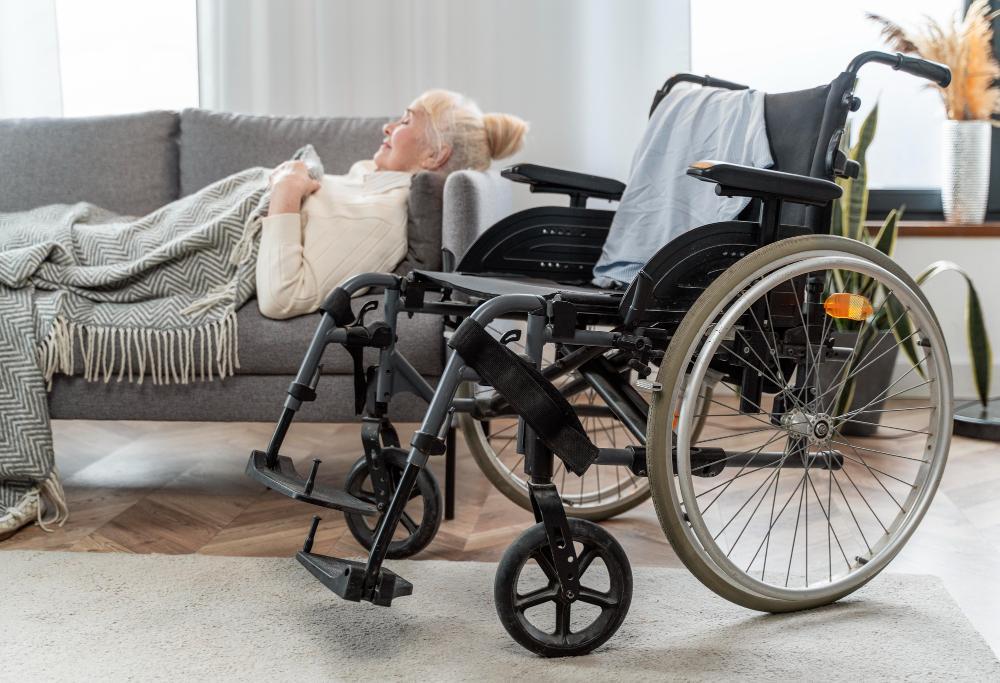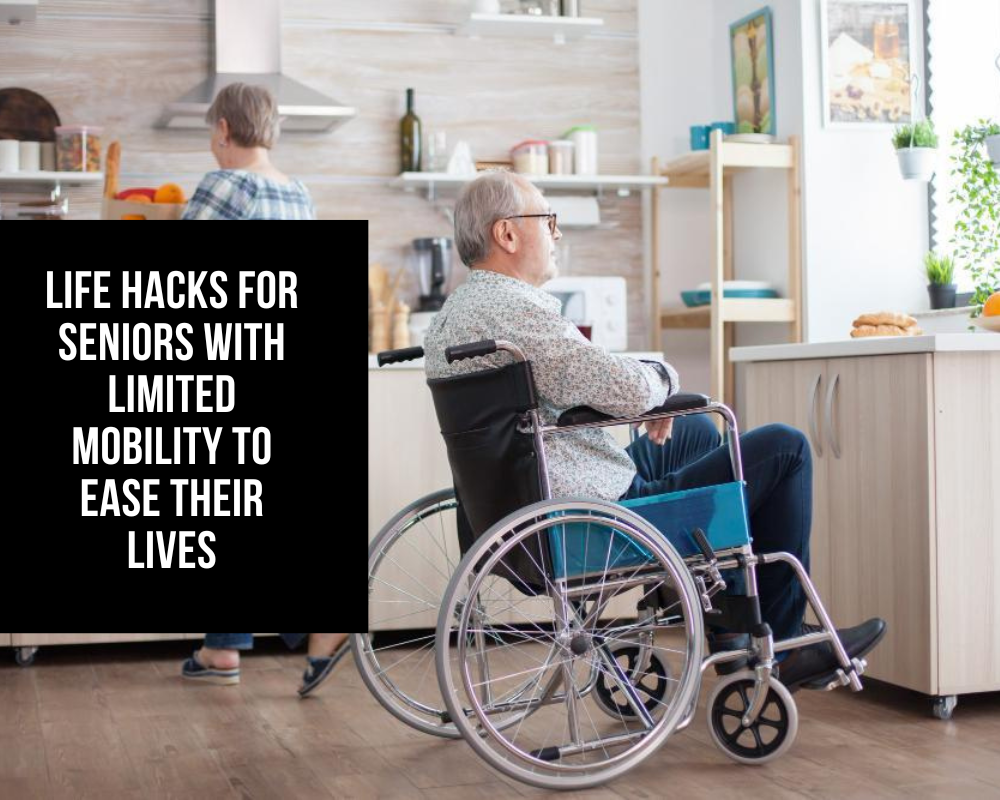With age, mobility can become a huge obstacle, and even simple chores may seem impossible. Despite this, with the right strategies and adaptations, senior adults with limited mobility can still have independence and possess a better quality of life. This article reveals practical hacks to navigate these challenges and make life easier.
Home Modifications
One of the easiest methods to adapt to limited mobility is the modification of your home environment. In the bathroom, grab bars as well as non-slip mats can prevent falls. While the raised toilet seats and the walk-in or roll-in showers offer added convenience and safety.
Accessibility has to be improved as well. Installing ramps for wheelchairs or walkers, widening doorways, and replacing traditional doorknobs with lever-style handles can make it much easier to move around the house. Security must be the top priority, so tripping hazards, including rugs and loose cords, should be removed. All the night lights should be installed for better visibility, and an emergency alert system can be considered to add to safety.
Assistive Devices
Assistive devices can be true lifesavers for seniors with restricted mobility. Mobility aids, including walkers, rollators, canes, and both manual and motorized wheelchairs, can play a paramount role in maintaining independence and preventing falls. Daily living aids, such as dressing aids (sock aids, button hooks, etc.), eating aids (weighted utensils, plate guards, etc.), and reach extenders or grabbers can help to simplify routine tasks.
Technology can also be a real game changer. Voice-controlled smart home devices can carry out multiple functions. Apps that remind you of your medication can be used to ensure proper medication adherence. Also, personal emergency response systems can be used to summon help when needed.

Lifestyle Adaptations
Through lifestyle habits modification, one can effectively lessen the problems associated with reduced mobility. Make your routine simple by meal prepping, getting help for housework, and decluttering to prevent physical strain and mental stress.
To stay flexible and strong, consider various activities suitable to your needs and abilities. Chair exercises, stretches, water aerobics or swimming, yoga, and pilates would be top-notch for seniors who find it difficult to move.
Both socializing and mental stimulation are important. Online communities, video calls, book clubs, discussion groups, and engaging hobbies can help the elderly stay connected and mentally engaged. The following actions might lead to better overall health and happiness.
Another lifestyle change that can be highly advantageous to seniors who have reduced mobility is looking for transportation options. The individual’s needs, as well as the location, should be taken into consideration when deciding whether to provide paratransit, ridesharing, or medical transportation services. These services can offer reliable and accessible ways to attend appointments, run errands, or partake in social activities. Having a secure and convenient transportation plan will avoid undue dependence as well as isolation.
Read: Regaining Your Balance: Life-Changing Advice from a Panic Attack Therapist
Traveling with Limited Mobility
Should a senior with limited mobility travel? Absolutely! Travel can provide an exciting feeling, new adventures, and the chance to learn and grow as an individual, which in turn promotes good health. While mobility restrictions may be a problem, they shouldn’t be an excuse for not visiting new places.
Useful Tips for Easier Travel
- Research accessibility: Before booking, make sure to do thorough research on the accessibility features of your chosen accommodation, transportation, and attractions. Try to find hotels that have accessible rooms, airlines that have mobility assistance services, and destinations that have accessible public spaces.
- Seek professional assistance: Consider a travel agent who is an expert in accessible travel. They are able to plan your travel itinerary taking into account your particular needs, and make the trip a pleasant one.
- Pack wisely: In addition to your usual travel items, bring along your mobility aids, medications, and medical documents. Pack extra items, like batteries for mobility devices or incontinence products, in case of delays or emergencies.
- Request assistance: Don’t be afraid to ask for help from airline and hotel staff, or local tour guides. The vast majority of travel providers are ready to help in any possible way to ensure that you have a smooth journey.
- Pace yourself: Do not set overly aggressive schedules that might result in exhaustion. Plan for frequent rest breaks and add some extra time for navigating. Set priorities by doing what is most important to you, and don’t get too exhausted.
- Consider cruising: Cruises can be a great choice for seniors with limited mobility. Many cruise ships provide accessible staterooms, amenities, and shore excursions. You can experience several destinations and enjoy the convenience of a floating hotel.
Conclusion
Being restricted doesn’t mean that you have to give up on life’s pleasures. Through the application of practical life hacks – using mobility devices, finding like-minded people, and traveling – senior people can keep their independence and live a meaningful life. Take care of your own well-being and adopt practices that make everyday living a little easier. This will help you cope better with the difficulties of limited mobility.



